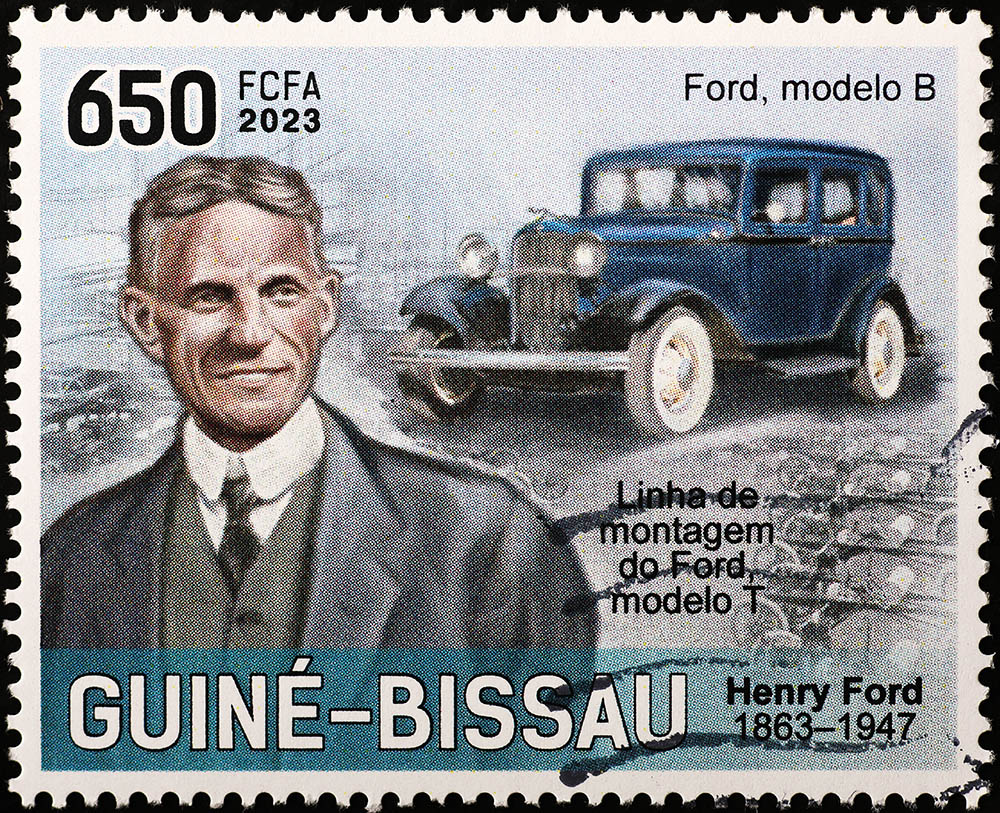
Henry Ford: Revolutionizing the Automobile Industry
When you hear about the automobile industry, Henry Ford's name stands out prominently.
Born in 1863 on a farm in Michigan, Ford was naturally drawn to machinery. By age 16, he was already working with engines as a machinist in Detroit, setting the stage for his future innovations.
Founding Ford Motor Company
In 1903, Ford founded the Ford Motor Company with a modest investment of $28,000. The company’s first car, the Model A, was just the beginning. Ford aimed to create an affordable car for the average American. This vision materialized in 1908 with the Model T—a reliable, easy-to-repair car initially priced at $825. Thanks to mass production, the price dropped to $260 by the mid-1920s, making cars accessible to the general public.
Pioneer of the Assembly Line
In 1913, Ford introduced the moving assembly line, revolutionizing manufacturing. This innovation reduced car production time from over 12 hours to just 93 minutes, making cars more affordable and boosting both sales and company profits.
Transforming Workforce Dynamics
Ford understood the importance of his workforce. In 1914, he introduced the "five-dollar day," doubling his workers’ wages. This move not only improved their living standards but also enabled them to afford the cars they produced, contributing to the rise of the modern middle class.
Global Expansion
By the 1920s, Ford had expanded internationally, establishing plants in Europe, Canada, and beyond. The Model T became a global sensation, selling over 15 million units by 1927. Ford was not just exporting cars but also the American Dream.
Continued Innovation
Following the Model T, Ford introduced the Model A in 1927, adapting to changing consumer preferences. The company continued to innovate, producing luxury vehicles and trucks, maintaining its leadership in the automotive industry despite challenges like labor disputes and economic downturns.
Ford’s Later Years and Enduring Legacy
The Great Depression and labor disputes in the 1930s challenged Ford's empire. Yet, the company endured, with Henry Ford transferring control to his grandson, Henry Ford II, in 1945. When Ford passed away in 1947, he left a legacy that had reshaped the world.
A Lasting Impact
Today, the Ford Motor Company remains a global leader in the auto industry. Henry Ford’s vision for affordable mobility continues to drive every vehicle produced, ensuring his enduring impact on the world.
In summary, Henry Ford didn’t just create a car company; he revolutionized manufacturing, transformed the workforce, and made cars accessible to the masses, thereby putting the world on wheels.
Check out our current Ford Deals here and see how you will Pay Less with Express Vehicle Contracts!
Image Contributor: Shutterstock - Spatuletail
Milan, Italy - April 9, 2024: Henry Ford and vintage car Model B on postage stamp









